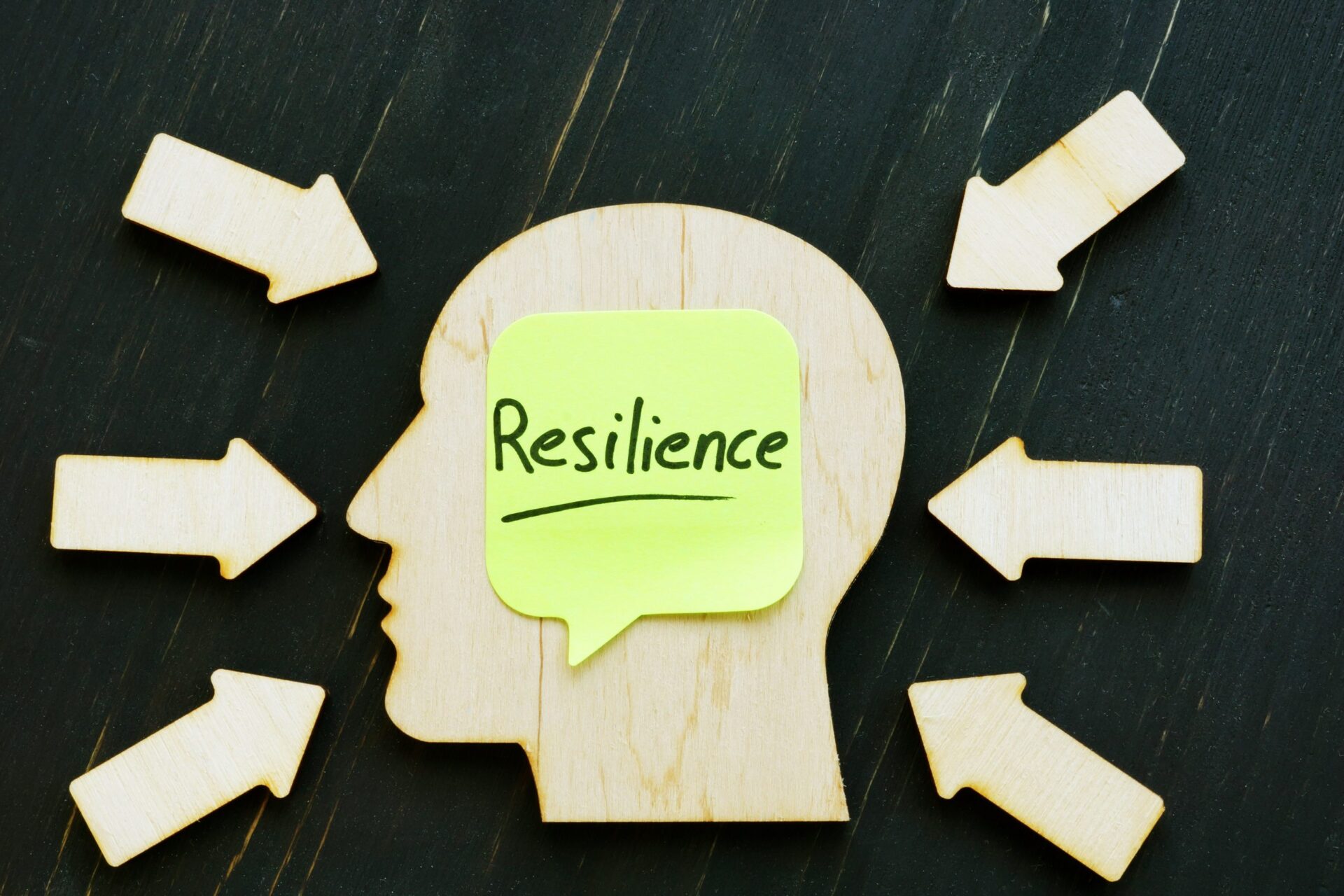Jackie Brown & Dr Arlene Egan
In October 2019, speaking at a Human Resources and Talent conference in Croke Park, one of us (Arlene) told a story about the resilient organisation. The point being made was that in times of crisis a resilient organisation can respond effectively to maintain a level of productivity and to keep staff well. The analogy used was that of a life raft. Rather than assuming that staff make it through challenging times on their own, a resilient organisation becomes their life raft. At the time, of course, we knew nothing of the ensuing global pandemic that has affected our personal and professional lives. The unprecedented impact that Covid-19 has had on us all means that the simple analogy of the life raft needs stepping up. And that brings us to the South American Fire Ant, one of the most persistently resilient insects whose ingenuity and collective action provides them the perfect strategy for surviving a total collapse of their natural habitats that happens in minutes.
Devastating flash floods are common in areas where these ant colonies are found. To survive the ants have had to evolve a way to overcome these drastic conditions. In times of threat, the ants use their own bodies to form a floating raft. Each individual making up the colony does what it needs to maximize the survival of them all. Air bubbles caught in between the ants provides buoyancy and safety. These bubbles are pushed down by the ants at the top, enabling survival of those under the surface. If it were not for the collective action the colony would be doomed. With the manipulation of something as simple as a bubble, the colony as a whole makes it through. Where can we find those bubbles in our struggling organisations? How can we become an effective collective? How can those at the top support us all in building resilience?
Thinking about these ants using teamwork, collaboration and cooperation to survive raises the question; is there a pattern that can be identified in the human response to COVID-19? Working with clients since the lockdown, we at Roffey Park Institute, have witnessed extraordinary mobilizations of people, teams and networks to create metaphorical rafts that have thus far enabled the survival of organizations. In all cases the resilience of the organization is derived from the way in which its people work together. As this suggests, resilience is inherently interpersonal – no-one can acquire it on their own.
Through our work with clients and our independent research, we have identified five capabilities that build interpersonal resilience: connections, perspective, purpose, emotional intelligence, and physical energy. Reflecting on these capabilities will help you to tell your story of your experience of this challenging time and look ahead with a fresh perspective towards the new phase in this global crisis.
Connections
In times of stress or challenge we often respond by withdrawing. This is a very human reaction: we do not want to share our vulnerability with others. As our ants remind us, though, in times of trouble we need to connect. To create our own floating rafts held together by lifelines and supported on air bubbles, requires focus, a disposition to value others and a high degree of trust. We have been challenged to find ways of connecting through long periods of disconnect, both personally and professionally. The wholesale shift into the virtual world is evidence of our adaptability, although for many it is a poor substitute for physical presence. It has also drawn on our energy in different ways, bringing us the delights of ‘zoom fatigue’ and endless reminders that we are ‘on mute’. But this has been essential to keep organisations afloat, to support those submerged in crisis work, and ultimately to allow all of us to resume some form of business as usual. How have you nurtured your connections? How have your connections nurtured you? Has your network changed? If so, what is the significance of this change?
Perspective
Seeing a challenge as an opportunity is easier said than done. It does not come naturally to all. Yet many of the conversations we have had with clients since March, especially those held more recently, suggest that it is happening widely. Many people have shared with us how the crisis has offered ways of refreshing work practices, adopting a more focused virtual offering, or trialing remote working. These opportunities are difficult to see at first because we are trying to make sense of the immediate challenge. However, through working with others, trial and error, experimentation, action and reflection we realise that the size and shape of the challenge can change. Being able to step back and consider what the threats and the opportunities are is necessary for us to build the capability to change our perspective. If we cannot find ways to reframe the challenge so we respond to it in different ways, we risk being overwhelmed by it. This in turn erodes our resilience. Who can you talk to, to help shift your perspective? How can you reframe a challenge into opportunity? How can we find time to see how a challenge changes as you move forward?
Emotional Intelligence
In times of stress we can easily be pushed into a negative mindset of quick reaction rather than considered response. This stems from an inherited sensitivity to physical threat and an instinct for survival, based on fast thinking and fast action. But these rapid responses may have negative impacts on ourselves and those around us. Using emotional intelligence will temper reactions and create space to breathe, think and respond effectively, for you and for others. This positively influences levels of interpersonal resilience. Understanding the types of situations or circumstances that can trigger or negative responses is a useful place to start. Increasing our awareness of these trigger-reaction situations, identifies the moments of choice that exist. The choice we make in these moments will influence; how we communicate, are ability to think and plan, how we feel and how well we can lead or manage others. What are your triggers? Do you have new triggers, ones that you are noticing in your new work habits? How can you change your pattern of response to be more effective for your or for others? How have you found ways to develop and use emotional intelligence? Have your leaders and managers had the emotional intelligence to support you? If not, how might you develop it in the future?
Physical Energy
The Fire Ants’ entire survival strategy relies on their having the physical strength to hold on to each other. We cannot cling to each other in that way, but this does not mean that we do not need our energy levels to be maintained. Recent conditions have sapped our strength in different ways. Many workers have spent lengthy periods simultaneously on lockdown and furlough. With the normal stimuli of the working day have been removed and many have found the lack of structure and rhythm disorienting and depressing. Those still working have often seen working days stretch ever longer. Because of that the nine to five has morphed into the seven to eight. It is all exhausting. The more so, paradoxically, because we spend so much more of these long days sitting down.
Working from home or living in the office? This line has been blurred lately. One of the benefits of lock-down that clients have told us about, is the reduction of commuting time. It is also one of the disadvantages. Being able to physically change location is important for building resilience. Movement has distinct healing properties, especially for the mind. Changing the orientation of our bodies, improves blood flow, our ability to solve problems and levels of creativity. It can also reduce negative thinking. It has been easy to slip into a sedentary pattern during lock-down yet, to increase resilience gentle exercise is recommended. While we replenish our energy stores through engaging in physical exercise, this is not the only form of energy we respond to. Social energy, taking time to meet virtually about non-work-related issues is as important for our resilience. Spending time in activites that bring us pleasure, excitement or peace are as important now as they were before lock-down (although some may need to be modified). How are you looking after your physical and mental health? What are you doing to have fun? How can you share social time with others?
Purpose
While the day-to-day work practice employed by teams has changed, the purpose of why we are doing the work, has probably endured. What we are hearing from clients however is; personal purpose and an ability to contribute to the organisation can be called into question. In times of stress of challenge, it is natural for us to question how and indeed whether we are making an impact. Finding routine in uncertainty is difficult, as is the ability to focus and find a rhythm that promotes our productivity. Understanding what it is about our work that we enjoy, the passion we have for the role we play or the customers we serve can remind us of our purpose and help us to rebased or understand that purpose through a new lens. As teams settle into new patterns clarity on organizational, team and personal purpose will emerge. To help stay focused and motivated it is useful to be mindful of the fact that change is not even. Instead, especially at the beginning it is a series of peaks and troughs. Understanding our purpose and the purpose of our role and team can help to sustain levels of motivation and engagement. Like the ants – their purpose is to keep the colony thriving; what is your purpose? What is the purpose of your team and has it changed at all? How can you draw on your purpose to motive, energise and nurture your resilience?
Bringing all of this together is relevant right now as we are on the cusp of more changes and metaphorical flash floods. Our research is useful information and our questions if reflected on will give you a point of departure to tell your own story and put yourself back in control of your own resilience with the choices you make.
The virtual manager programme and highlight series commissioned by AHCPS has provided support and space for participants to reflect on and start to make sense of their stories that connect back to individual awareness and collective action.





